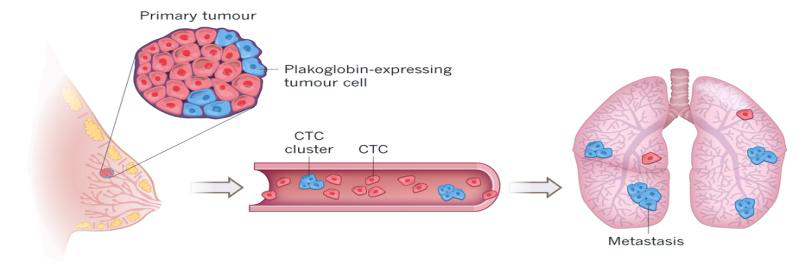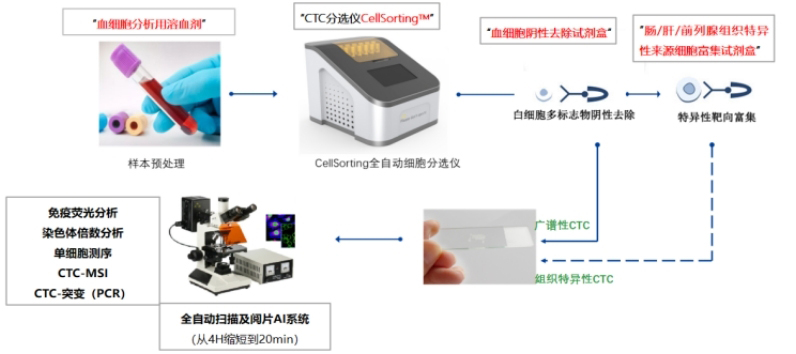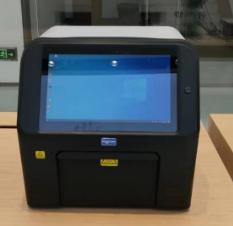CTC usually refers to solid tumor cells that enter the bloodstream through blood vessels or lymphatic vessels


Major pathological opportunities beyond "tissue pathology"
The number and type of CTC are new prognostic indicators outside of tumor TNM
CTC+scSEQ (single cell sequencing) is a monitoring method for metastatic lesions in patients with metastasis
Tissue specific CTC (liver cancer, prostate cancer, colon cancer) capture efficiency>80%
Pathological detection of urothelium cancer cells can be used to detect bladder cancer patients with urine samples for early screening and recurrence monitoring. The expression level of K17 in urothelium carcinoma is 2.5-8 times higher than that in normal urothelium mucosa. As a diagnostic biomarker for urothelium tumor formation in bladder biopsy and urine cytology samples
Various clinical application guidelines, with prices or medical insurance available in many provinces (Guangxi, Hunan, Beijing, Shanghai, Jiangsu, Shanxi, Anhui, Jilin, Hebei, Shandong, Tianjin);
Multiple manufacturers provide CTC products, with a highly dispersed market; No manufacturer has gained market leadership position. Microfocus transfer patient treatment evaluation, fully automated scanning, and AI recognition.
Technology: size screening+negative removal+positive enrichment "three in one"
Cost: Instruments and reagents account for approximately one-third of the competition
AI: Fully automatic scanning and AI recognition, complete film reading within 20 minutes (1/10 price of Zeiss products)

Fully automatic film reading scanner
OEM: OEM authorized broad-spectrum CTC, with Dewei as the source manufacturer, quickly replacing competitors
Self operated: CTC molecular pathology, including scSEQ mutations, CTC-MSI, CTC-HRD